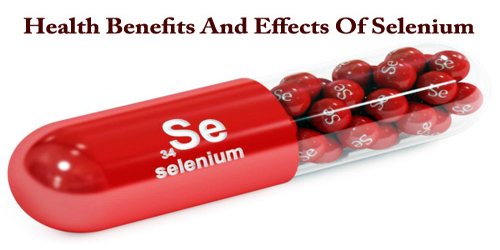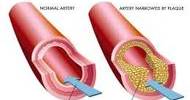Selenium is a trace mineral, which means that our body only needs a small amount of it. Selenium combines with proteins in the body to form antioxidants called selenoproteins, which help protect the cells in our body from free radical damage. Selenium is also essential for normal thyroid function, reproduction, and DNA synthesis. Selenium is not produced in the body, but it is needed for proper thyroid and immune system function.
Most of the selenium in the body comes from the diet. The amount of selenium in food depends on where it is grown or raised. Crab, liver, fish, poultry, and wheat are generally good selenium sources. The amount of selenium in soils varies a lot around the world, which means that the foods grown in these soils also have differing selenium levels.
The amount of selenium people need is:
- 0.075mg a day for men (19 to 64 years)
- 0.06mg a day for women (19 to 64 years)
If we eat meat, fish or nuts, we should be able to get all the selenium we need from our daily diet.
Selenium is actually used for selenium deficiency, a disease that causes underactive thyroid (autoimmune thyroiditis), and high blood pressure during pregnancy. It is also used for diseases of the heart and blood vessels, including stroke, complications from statin drugs, and abnormal cholesterol levels, as well as for many other conditions, but there is no good scientific evidence to support these uses.
Health Benefits –
Selenium may help prevent cardiovascular disease, thyroid problems, cognitive decline, which means disorders related to thinking, cancer, and others.
- Cardiovascular disease: According to the Office for Dietary Supplements, selenoproteins can protect against cardiovascular disease, because they prevent the oxidative modification of lipids, or fats, in the body. This reduces inflammation and prevents the buildup of platelets. However, clinical evidence does not support the use of selenium supplements for this purpose.
- Cognitive decline: Selenium’s antioxidant activity may help reduce the risk of cognitive, or mental, decline, as people get older. Evidence from studies is mixed, however, and selenium supplements are not yet prescribed for people at risk of diseases such as Alzheimer’s, although it may have a role in prevention that is still under investigation.
- Thyroid disorders: Selenium has an important role in producing and metabolizing thyroid hormone. There is some evidence that women with higher selenium levels have fewer thyroid problems, but this has not been proven for men, and other studies have produced mixed results. More studies are underway to decide whether selenium supplements might support thyroid health.
- Cancer: The role played by selenium in DNA repair and other functions may mean that is can help prevent cancer. However, studies have produced mixed results.
Studies have suggested that selenium may also help to:
- prevent HIV from progressing to AIDS
- reduce the risk of miscarriage
- protect against asthma
There has been some investigation into whether a woman’s selenium levels during pregnancy might predict her child’s risk of asthma.
While selenium is clearly an element for many aspects of human health, there is too little evidence to indicate that supplements could be of use in preventing these conditions.
Side Effects –
Selenosis (having too much selenium in our body) results in gastrointestinal symptoms, hair loss, white blotchy nails, garlic breath odor, fatigue, irritability, and mild nerve damage. The National Academy of Sciences set a tolerable upper dietary intake level for selenium at 400 micrograms per day for adults. It can cause muscle tenderness, tremor, lightheadedness, facial flushing, blood clotting problems, liver and kidney problems, and other side effects.
Long term use of high selenium doses can lead to dangerous side effects including:
- nausea, vomiting;
- lack of energy, feeling irritable or very tired
- hair loss, mild rash, brittle or painful fingernails, or white streaks on the nails;
- tremors, feeling light-headed;
- muscle tenderness;
- flushing (warmth, redness, or tingly feeling);
- metallic taste, bad breath, strong body odor; or
- easy bruising or bleeding.
Selenium might increase the risk of bleeding during and after surgery. Stop taking selenium at least 2 weeks before a scheduled surgery.
High doses or long-term use of selenium can lead to serious medical problems or death. Do not use more of this product than is recommended on the label. Follow all directions on medicine labels and packages. Taking 0.35mg or less a day of selenium supplements is unlikely to cause any harm.
Information Sources:
















